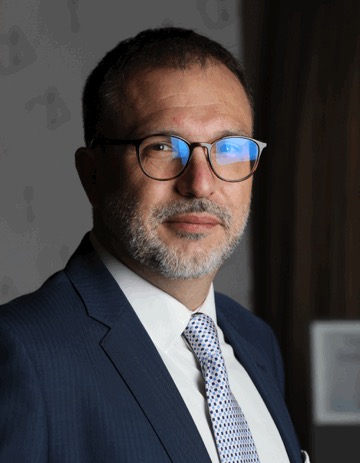Studying at the University of Verona
Here you can find information on the organisational aspects of the Programme, lecture timetables, learning activities and useful contact details for your time at the University, from enrolment to graduation.
Academic calendar
The academic calendar shows the deadlines and scheduled events that are relevant to students, teaching and technical-administrative staff of the University. Public holidays and University closures are also indicated. The academic year normally begins on 1 October each year and ends on 30 September of the following year.
Course calendar
The Academic Calendar sets out the degree programme lecture and exam timetables, as well as the relevant university closure dates..
| Period | From | To |
|---|---|---|
| primo semestre | Sep 23, 2013 | Jan 10, 2014 |
| secondo semestre | Feb 17, 2014 | May 30, 2014 |
| Session | From | To |
|---|---|---|
| Sessione Invernale Esami | Jan 13, 2014 | Feb 15, 2014 |
| Sessione Estiva esami | Jun 3, 2014 | Jul 12, 2014 |
| Sessione Autunnale Esami | Aug 25, 2014 | Sep 10, 2014 |
| Session | From | To |
|---|---|---|
| Sessione di Lauree - Novembre | Nov 7, 2013 | Nov 8, 2013 |
| Sessione di Lauree - Aprile - Verona | Apr 9, 2014 | Apr 10, 2014 |
| Sessione di Lauree - Settembre | Sep 11, 2014 | Sep 12, 2014 |
| Period | From | To |
|---|---|---|
| Vacanze Natalizie | Dec 23, 2013 | Jan 4, 2014 |
| Vacanze Estive | Aug 11, 2014 | Aug 23, 2014 |
Exam calendar
Exam dates and rounds are managed by the relevant Economics Teaching and Student Services Unit.
To view all the exam sessions available, please use the Exam dashboard on ESSE3.
If you forgot your login details or have problems logging in, please contact the relevant IT HelpDesk, or check the login details recovery web page.
Academic staff
 gianluigi.lucietto@univr.it
gianluigi.lucietto@univr.it
Roventini Andrea
 andrea.roventini@univr.it
andrea.roventini@univr.it
 nicola.sartor@univr.it
nicola.sartor@univr.it
Vaona Andrea
 andrea.vaona@univr.it
andrea.vaona@univr.it
 045 8028537
045 8028537
Study Plan
The Study Plan includes all modules, teaching and learning activities that each student will need to undertake during their time at the University.
Please select your Study Plan based on your enrollment year.
1° Year
| Modules | Credits | TAF | SSD |
|---|
2° Year activated in the A.Y. 2014/2015
| Modules | Credits | TAF | SSD |
|---|
A course to be chosen among the following| Modules | Credits | TAF | SSD |
|---|
| Modules | Credits | TAF | SSD |
|---|
A course to be chosen among the following| Modules | Credits | TAF | SSD |
|---|
Legend | Type of training activity (TTA)
TAF (Type of Educational Activity) All courses and activities are classified into different types of educational activities, indicated by a letter.
Mathematical models for business and economics (2013/2014)
Teaching code
4S02467
Academic staff
Coordinator
Credits
6
Language
English
Scientific Disciplinary Sector (SSD)
SECS-S/06 - MATHEMATICAL METHODS OF ECONOMICS, FINANCE AND ACTUARIAL SCIENCES
Period
primo semestre dal Sep 23, 2013 al Jan 10, 2014.
Location
VERONA
Learning outcomes
The main purpose is to provide a range of mathematical tools in order to handle the economic phenomena. First of all, some basic notions on functions of several variables are recalled. Then the course aims to give, in the 1st module, some essential knowledge on unconstrained and equality/inequality constrained optimization and, in the 2nd module, an introduction to differential equations and systems of differential equations.
Program
Module 1 (prof. L. Pellegrini - 4 TC)
Functions of several variables
Level sets
Differential calculus for functions of several variables
Quadratic forms and definite matrices
Convex functions and generalized convexity
Unconstrained optimization
Constrained optimization with equality constraints
Lagrangian function and optimality conditions
Constrained optimization with inequality constraints
Kuhn-Tucker theorem
Constraints qualification
Module 2 (prof. A. Peretti - 2 TC)
A refresh on indefinite integrals and integration techniques
Ordinary differential equations. Some general aspects
Linear 1st order differential equations
Separable differential equations
Linear 2nd order differential equations. The non homogeneous case
Systems of differential equations
Linear systems. Solution by substitution
Solution of a linear system through diagonalization
A detailed program and the references to the textbooks are on the e-learning page.
Teaching supply
The course consists of 36 hour lectures (equivalent to 6 credits).
In addition to the theoretical notions, lectures provide also some adequate set of techniques for solving exercises.
| Author | Title | Publishing house | Year | ISBN | Notes |
|---|---|---|---|---|---|
| R.K. SUNDARAM | A first course in Optimization Theory | Cambridge ; New York : Cambridge University Press | 1996 | 978-0-521-49770-1 | |
| C.P. SIMON, L.E. BLUME | Mathematics for Economists | New York, London: Norton & Company Press, Cambridge | 1994 | 0-393-95733-0 |
Examination Methods
Written and oral exam.
In the written test, candidates are expected to apply the fundamental notions of the course in order to solve exercises on functions of several variables, optimization problems and differential equations.
The oral examination consists at first in discussing the possible mistakes of the written test, then in investigating the theoretical competence of the candidate; hence, the knowledge of definitions and simple proofs is required.
A minimum mark is needed at the written test for the admittance to the oral discussion.
Type D and Type F activities
Modules not yet included
Career prospects
Module/Programme news
News for students
There you will find information, resources and services useful during your time at the University (Student’s exam record, your study plan on ESSE3, Distance Learning courses, university email account, office forms, administrative procedures, etc.). You can log into MyUnivr with your GIA login details: only in this way will you be able to receive notification of all the notices from your teachers and your secretariat via email and soon also via the Univr app.
Linguistic training CLA
Gestione carriere
Student login and resources
Graduation
List of theses and work experience proposals
| theses proposals | Research area |
|---|---|
| La (cattiva) gestione dei fondi comunitari in Italia | ECONOMICS - ECONOMICS |
| Analisi dell'Impatto della Regolamentazione: potenziale e applicazioni concrete | Various topics |
| Costs and benefits of the new Turin-Lyon railway line | Various topics |
| Costs and benefits of new systems for speed control on italian motorways | Various topics |
| Contingent valuation for the quality of hospital characteristics | Various topics |
| Evaluating occupational impacts of large investment projects | Various topics |
Internships
Admission policy
ADMISSION POLICY
The admission procedure for international students is explained in details at:
www.magecverona.it/admission-benefits/
For further information please contact magec@dse.univr.it
Additional information
Additional information
For further information visit the program website, http://magec.dse.univr.it, or send an email at magec@dse.univr.it.















